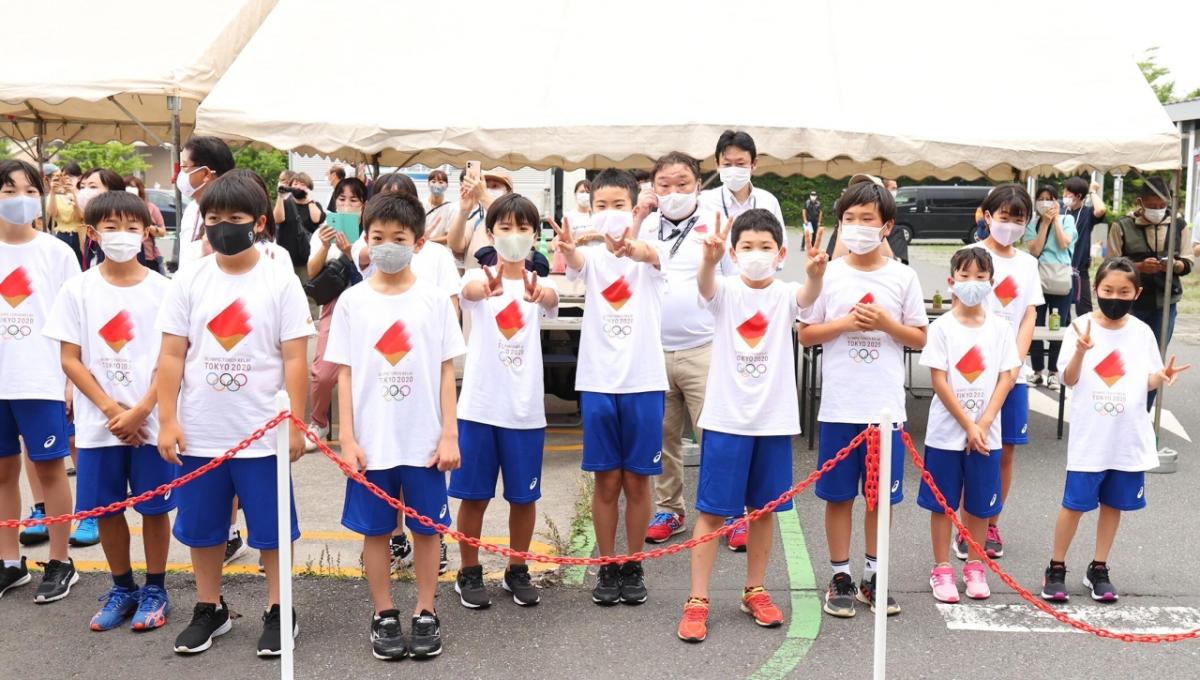Power to the People: Tokyo 2020 Set to Replicate the Legacy of 1964

International Olympic Committee
The Olympic Games Tokyo 1964 hold a special place in the hearts of millions of Japanese people. Despite the challenges related to the COVID-19 pandemic and the unprecedented postponement of the Tokyo 2020 Games, a myriad of initiatives have been undertaken to ensure the city’s second staging of the world’s greatest sporting event has just as profound an impact.
Since the first signature events in 2014, organisers have placed a strong emphasis on bringing Tokyo 2020 to the lives of as many people in the country as possible.
Children have been the focus of many of the 150,000 activities to have taken place. Not only did elementary school children choose Miraitowa and Someity, respectively the Olympic and Paralympic Games mascots, they have also been taking part in the Tokyo 2020 School Sports Day Project and the Let’s 55 programme.
As part of the latter initiative, youngsters all over Japan have had the chance to interact with the 55 Olympic and Paralympic sports on the Tokyo 2020 programmes. First, between 2018 and early 2020, kids got the opportunity to try a huge range of new sports, from powerlifting and water polo to canoeing and kayaking. Then, as the impact of the COVID-19 pandemic hit, the programme evolved into a virtual offering. Thanks to some magical technology, viewers got an athlete’s eye view of what it takes to become an Olympian and Paralympian. Using 360-degree cameras, athletes invited the public into their training domains, showcasing the true demands of training to be the very best.
The Games have reached the classroom, too, thanks to specially devised Olympic and Paralympic curriculums. But it is not just Japanese youth who have been learning.
A number of programmes have encouraged people of all ages to embrace the Olympic and Paralympic Games. For example, the No Limits Challenge is a mixture of virtual and live events that acquaint participants with Para sports and offer opportunities for them to get involved. Similarly, the Team Beyond initiative has helped Para sports federations host international competitions, further exposing the public to new sports.
And, thanks to a pioneering project, a number of Japanese residents are likely to feel even more closely connected with the most successful competitors. The metal used for some 5,000 medals to be awarded during the Olympic and Paralympic Games Tokyo 2020 has come from mobile phones and other small household electronics donated by members of the public.
In addition, plastic waste donated by the public – the equivalent of 400,000 bottles of detergent – has been used to make the medal podiums, as part of an initiative in cooperation with Worldwide Olympic Partner P&G.
While inventiveness has been key, particularly since the outbreak of COVID-19, more traditional activities have ensured the spirit of the Games has reached far beyond Tokyo. The Olympic Torch Relay has had to adapt to the local conditions throughout its 121-day journey, but it has still managed to visit all 47 prefectures of Japan, with local people able to follow its progress through a live stream.
Despite the unique challenges of hosting Tokyo 2020, organisers are doing their best to use the power of sport and the Olympic Games to empower as many locals as possible, and leave a lasting legacy in their hearts.

